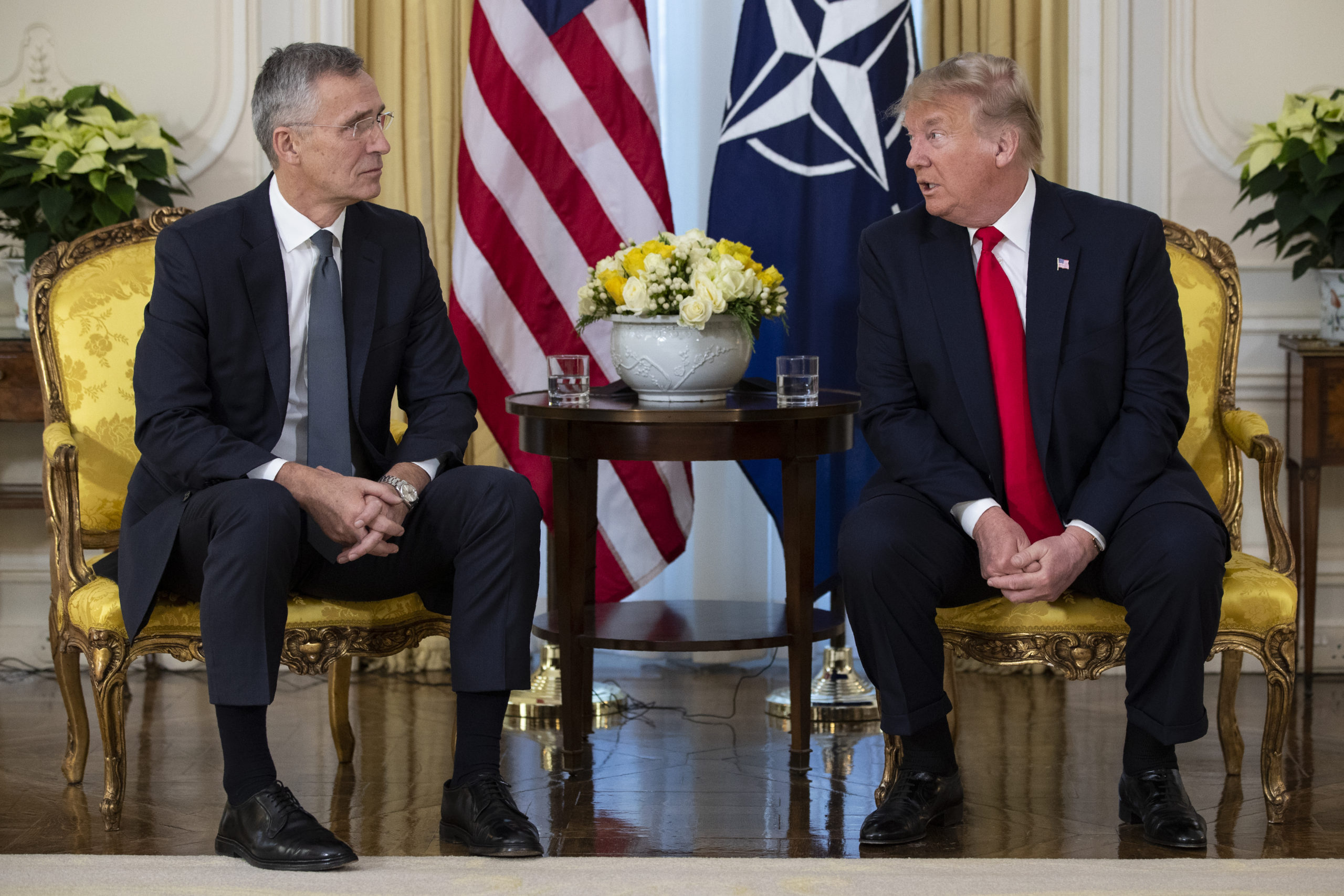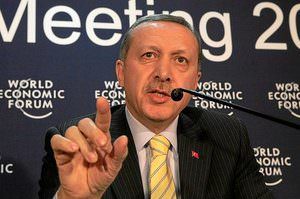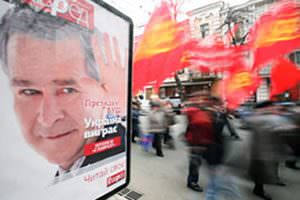NATO Chief Seeks to Shore Up Unity as Rows Roil Allies
French president's comments about the alliance's "brain death" due in part to lack of U.S. leadership draw President Trump's sharp retort. NATO Secretary-General Jens Stoltenberg listens as President Donald Trump speaks during their meeting at Winfield House in London. World leaders are gathering to mark the NATO Alliance's 70th birthday. (Evan Vucci / AP)
NATO Secretary-General Jens Stoltenberg listens as President Donald Trump speaks during their meeting at Winfield House in London. World leaders are gathering to mark the NATO Alliance's 70th birthday. (Evan Vucci / AP)
LONDON — With questions raised over NATO’s credibility, the Western military alliance struggled to present a united front Tuesday as some of its biggest member countries traded barbs over their visions for the future.
NATO Secretary-General Jens Stoltenberg sought to shore up unity as leaders from across the 29-member trans-Atlantic alliance gathered in London to mark its 70th anniversary and to show that it is adapting to modern threats.
“NATO is the most successful alliance in history because we have been able to change when the world is changing,” Stoltenberg said after talks with U.S. President Donald Trump.
“That is exactly what we are doing again,” he said.
Though NATO has thousands of troops deployed in the Baltics and Poland to dissuade Russia from any military forays like those it launched in Ukraine and Georgia in the recent past, the strength of that military deterrent has been undermined by recent bickering among some leaders.
Ahead of the London summit, French President Emmanuel Macron alarmed his allies by lamenting the “brain death” of NATO, in part due to what he said was a lack of U.S. leadership, but also because of Turkey’s invasion of northern Syria.
Trump has described Marcon’s comments as “very, very nasty.” Turkish President Recep Tayyip Erdogan has suggested that it might be the French leader who is “brain dead.” The spat comes as their host at the London summit, British Prime Minister Boris Johnson, is otherwise engaged in a divisive election campaign.
Even Stoltenberg conceded that leaders “should never question the unity and the political willingness to stand together and to defend each other.”
“The whole purpose of NATO is to preserve peace,” he said. “It’s to prevent conflict by sending a clear message to any potential adversary that if one ally is attacked it will trigger a response from the whole alliance.”
Stoltenberg won support from Canadian Prime Minister Justin Trudeau, who said “the future for this alliance is bright.”
“We’ve adjusted and adapted and stayed true to the original values that brought us together,” Trudeau said.
He added that NATO’s longevity since it was first established in 1949 to provide collective security for Europe against what was then the Soviet Union was down to the fact that “we’ve always had frank, real conversations.”
Macron wants NATO to focus on strategic questions like who its enemies really are and how to improve ties with Russia rather than dither over defense spending.
Dutch Prime Minister Mark Rutte acknowledged that the French leader is right, but only to a point.
Referring to the challenges posed by Russia, or an emerging China, or even the need for Europe to play a bigger security role, Rutte said “these all require a fundamental rethink without losing the cornerstones of NATO.”
But on the need for bigger military budgets — a favorite whip Trump uses to lash European allies and Canada — Rutte said: “We cannot have the U.S. shoulder all the burden.”
The United States spends more on defense than all the other allies combined. No country owes Washington money, but NATO allies rely on U.S. transport and air support to conduct military operations.
After Russia annexed the Crimean Peninsula in 2014, NATO countries halted their post-Cold War spending cuts and began increasing spending. They pledged to “move toward” spending 2% of their annual GDP on national defense by 2024.
Trump said much more needs to be done.
“You could make the case that they’ve been delinquent for 25-30 years,” Trump said. The figure of 2%, he added, “is a very low number, it really should be 4.”
Ian Lesser, Vice President of The German Marshall Fund of the United States think-tank, said the credibility of NATO’s collective defense clause — known as Article 5 — must be discussed.
“It’s sort of at the center of the debate,” Lesser said. “No one wants to talk too much about it because they fear it will somehow erode the credibility or the reliance on it, but NATO is going to have to have that debate.”
___
Zeke Miller in London, Suzan Fraser in Ankara, Daria Litvinova in Moscow and Darlene Superville in Washington contributed to this report.
Your support is crucial…With an uncertain future and a new administration casting doubt on press freedoms, the danger is clear: The truth is at risk.
Now is the time to give. Your tax-deductible support allows us to dig deeper, delivering fearless investigative reporting and analysis that exposes what’s really happening — without compromise.
Stand with our courageous journalists. Donate today to protect a free press, uphold democracy and unearth untold stories.



You need to be a supporter to comment.
There are currently no responses to this article.
Be the first to respond.